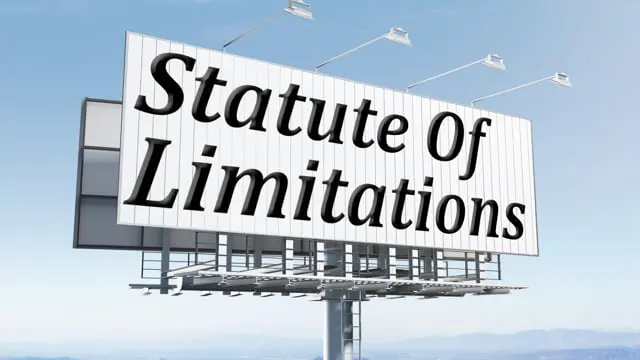El paisaje de marijuana laws in the United States is complex and rapidly evolving, with a patchwork of regulations that vary significantly from state to state. As of 2024, the use, sale, and possession of cannabis containing over 0.3% THC by dry weight remains illegal under federal law, despite numerous states enacting legislation permitting its use for various purposes. This dichotomy between federal and state laws has created a unique legal environment that continues to challenge policymakers, law enforcement, and citizens alike.
At the federal level, marihuana is classified as a Schedule I substance under the Ley de Sustancias Controladas, a categorization that deems it to have no accepted medical use and a high potential for abuse. This classification places cannabis in the same category as drugs like heroin and LSD, which has been a point of contention for advocates of marijuana reform. However, recent developments suggest that this strict federal stance may be softening. In January 2024, the Food and Drug Administration (FDA) recommended rescheduling marijuana to Schedule III, which would acknowledge its potential for medical use and reduce regulatory restrictions.
The process of potentially rescheduling marijuana at the federal level is lengthy and complex. Following the FDA’s recommendation, a public comment period was held from May to July 2024, during which nearly 43,000 comments were submitted. Interestingly, about 69% of these comments advocated for complete decriminalization of marijuana, rather than just rescheduling. A public hearing on the matter is scheduled for December 2024, after which a decision on reclassification will be made. This potential shift in federal policy could have far-reaching implications for research, medical use, and the cannabis industry as a whole.
Despite the federal prohibition, individual states have taken diverse approaches to marijuana legislation. As of 2024, 24 states, the District of Columbia, and two territories (Guam and the Northern Mariana Islands) have legalized cannabis for adult recreational use. These laws typically allow adults aged 21 and over to possess small amounts of marijuana for personal use, with varying regulations on cultivation, sale, and consumption.
The trend towards legalización has gained significant momentum in recent years. For example, in 2023, Ohio became the latest state to legalize recreational marijuana use through a ballot initiative. The Ohio law allows residents aged 21 and over to possess up to 2.5 ounces of cannabis or 15 grams of extracts. It also permits home cultivation of up to six plants per individual, with a maximum of 12 plants per household. The law establishes a regulatory framework for the cannabis industry, including licensing for cultivators, processors, and dispensaries, and imposes a 10% tax on recreational cannabis sales.
In addition to states that have fully legalized recreational use, 38 states and the District of Columbia have comprehensive medical marijuana programs. These programs allow patients with qualifying medical conditions to access cannabis products for therapeutic purposes. The specific conditions that qualify for medical marijuana use vary by state but often include chronic pain, epilepsy, cancer, and PTSD. Some states have more restrictive medical cannabis laws, allowing only for the use of CBD or low-THC products for specific medical conditions.
The implementation of state-level marijuana laws has had significant social and economic impacts. One of the most notable effects has been on criminal justice reform. In states that have legalized or decriminalized marijuana, there has been a marked decrease in arrests and convictions for marijuana-related offenses. This shift has helped to address long-standing racial disparities in drug law enforcement, as minority communities have historically been disproportionately affected by marijuana prohibition.
Economically, the legal cannabis industry has created new job opportunities and generated substantial tax revenue for states. For instance, in Colorado, one of the first states to legalize recreational marijuana, the industry has created tens of thousands of jobs and generated over $2 billion in tax revenue since legalization in 2014. This new source of revenue has been used to fund education, infrastructure, and other public programs in many states.
However, the conflict between state and federal law continues to create challenges for the cannabis industry. Because marijuana remains illegal at the federal level, businesses in the industry face significant obstacles in accessing banking services, as many financial institutions are reluctant to work with cannabis companies due to federal regulations. This has led to a largely cash-based industry, which presents security risks and operational difficulties.
The inconsistency between state and federal laws also creates complications for individuals. For example, even in states where marijuana is legal, its use can still have consequences for employment, housing, and federal benefits. Many employers maintain drug-free workplace policies that prohibit marijuana use, regardless of state law. Similarly, individuals living in federally subsidized housing can face eviction for using marijuana, even if it’s legal in their state.
The legal landscape surrounding marijuana is further complicated by international treaties. The United States is a signatory to several international drug control treaties that obligate member nations to prohibit the production and sale of certain drugs, including marijuana. As more states legalize cannabis, there is growing tension between these international obligations and domestic policies.
In response to the evolving legal landscape, there have been numerous attempts at federal reform. The Cannabis Administration and Opportunity Act, introduced in the Senate in 2022, aimed to decriminalize marijuana at the federal level and officially acknowledge states’ own marijuana laws. While this bill did not pass, it reflects growing bipartisan interest in addressing the federal-state conflict in marijuana laws.
Another significant piece of federal legislation is the SAFE Banking Act, which would provide protections for financial institutions that serve state-legal marijuana businesses. This bill has passed the House of Representatives multiple times but has yet to clear the Senate. Its passage would be a major step in normalizing the cannabis industry and addressing one of the key challenges faced by marijuana businesses.
The debate over marijuana laws extends beyond simple legalization to encompass a range of regulatory issues. For instance, there is ongoing discussion about appropriate THC limits in cannabis products, labeling requirements, and restrictions on advertising. Only two states currently cap THC levels in most recreational marijuana products, and just ten require warnings about the potential for habit formation. Even fewer states mandate warnings regarding potential health risks such as cannabinoid hyperemesis syndrome or psychosis.
A 2024 report from the National Academies of Sciences highlighted the inconsistent legal framework surrounding cannabis legalization, noting that many states have prioritized sales revenue and taxes over public health concerns. The report called for a more unified approach to cannabis regulation, including a federal campaign to educate the public about the risks of increasingly potent cannabis products. It also advocated for lifting restrictions on cannabis research to better understand its health impacts.
The issue of marijuana research is particularly crucial. The Schedule I classification of marijuana has historically made it difficult for researchers to study its effects, both positive and negative. This has led to a situation where policy often outpaces scientific understanding. As more states legalize marijuana, there is a growing need for comprehensive research on its long-term health effects, potential medical applications, and societal impacts.
One area of particular concern is the impact of marijuana legalization on road safety. While it’s clear that driving under the influence of marijuana is dangerous and illegal, there is ongoing debate about how to effectively test for marijuana impairment in drivers. Unlike alcohol, THC can remain detectable in the body long after its impairing effects have worn off, making it challenging to establish clear legal standards for impaired driving.
The legalization of marijuana has also raised questions about workplace policies. Many employers are grappling with how to balance their drug-free workplace policies with the rights of employees who use marijuana legally under state law. Some states have enacted laws protecting employees from discrimination based on their use of medical marijuana, but the issue remains contentious, particularly in safety-sensitive industries.
Another emerging issue is the regulation of hemp and hemp-derived products. The 2018 Farm Bill legalized hemp at the federal level, defining it as cannabis plants containing no more than 0.3% THC. This has led to a boom in hemp-derived products, including CBD oils and edibles. However, the legalization of hemp has also created a legal loophole for products containing delta-8 THC, a psychoactive compound that can be derived from legal hemp. Many states are now grappling with how to regulate these products, which exist in a legal gray area.
The marijuana industry is also facing growing scrutiny over its marketing practices. In 2019, researchers used the cannabis company MedMen as a case study to illustrate concerns about marijuana companies’ marketing tactics, particularly their use of health claims without adequate warnings and appeals to youth. As the industry grows, there are likely to be increased calls for stricter regulation of cannabis advertising and marketing.
Looking to the future, several states are considering marijuana legalization measures for upcoming elections. For example, Florida voters will decide on a marijuana legalization initiative in November 2024. North Dakota and South Dakota are also considering ballot measures for adult-use legalization. These potential changes could further shift the national landscape of marijuana laws.
At the federal level, there is growing pressure for reform. In his 2024 State of the Union address, President Biden made history by becoming the first president since Ronald Reagan to mention marijuana in this annual speech. However, unlike Reagan, who framed marijuana as a target in the War on Drugs, Biden discussed potential reforms, including descheduling.
The evolving legal status of marijuana is also having significant impacts on criminal justice reform efforts. Many states that have legalized marijuana are also implementing measures to expunge or seal past marijuana convictions. These efforts aim to address the long-lasting consequences of marijuana prohibition, which have disproportionately affected communities of color.
In conclusion, the marijuana laws in the United States are in a state of flux, with a complex interplay between federal prohibition and state-level legalization. As public opinion continues to shift in favor of legalization and more states adopt permissive marijuana laws, pressure is mounting for federal reform. However, significant challenges remain, including addressing public health concerns, regulating a growing industry, and reconciling conflicting state and federal laws. As the legal landscape continues to evolve, it will be crucial for policymakers, researchers, and the public to engage in ongoing dialogue about the most effective and equitable approaches to marijuana regulation.
Fuentes:
- https://en.wikipedia.org/wiki/Legality_of_cannabis_by_U.S._jurisdiction
- https://www.usnews.com/news/best-states/articles/where-is-marijuana-legal-a-guide-to-marijuana-legalization
- https://www.cdc.gov/cannabis/about/state-medical-cannabis-laws.html
- https://en.wikipedia.org/wiki/List_of_2024_United_States_cannabis_reform_proposals
- https://alcoholpolicy.niaaa.nih.gov/recently-adopted-cannabis-legalization-laws
- https://en.wikipedia.org/wiki/Cannabis_in_the_United_States
- https://norml.org/laws/federal-penalties-2/
- https://www.mpp.org/policy/
- https://www.congress.gov/bill/118th-congress/house-bill/610
- https://www.mpp.org/issues/legislation/key-marijuana-policy-reform/
- https://floraflex.com/default/blog/post/the-social-impact-of-marijuana-legalization








